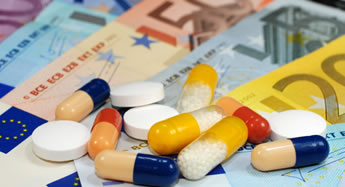Lower maximum prices of medicines as of April 2020
March 2020
Due to a recent legislative amendment, pharmaceutical companies might have to reduce their prices for some of their medicines in the Netherlands. The reason for this is the lower maximum prices permitted as of April 2020.
Maximum price
In the Netherlands, the Medicines Pricing Act (Wet geneesmiddelenprijzen, WGP) is one of the instruments to ensure reasonable prices for medicines on the market. The Medicines Pricing Act allows the Minister of Health to set maximum prices for medicines.
Twice a year, the Minister of Health considers whether there is reason to amend the scheme of the maximum prices. When establishing the maximum prices, the price lists of the reference states are crucial. These generally accepted lists provide information on the pharmacy purchase prices of comparable medicines in the respective country.
The Medicines Pricing Act defines "comparable medicines" as medicinal products containing the same active ingredients, of the same (or almost the same) strength and in the same pharmaceutical form, as another medicinal product.
Once a product group of comparable medicines is identified, its average price in the relevant reference state is calculated. From here, the average of these results will determine the maximum price of the comparable medicine for the Netherlands.
What has changed?
From 1996 until April 2020, the reference states were Belgium, France, Germany and the United Kingdom. Recently, the Minister of Health has decided that Germany should be replaced by Norway as of 1 April 2020. The rationale behind this decision is that Germany's medicine prices are high – well above the average prices in the European Union.
As medicine prices in Norway are lower than in Germany, the upshot of this is that maximum prices in the Netherlands will be lower. According to a press release issued by the Minister of Health, this means that, in many cases, pharmaceutical companies will have to adjust their prices. The Minister of Health claims that this change will result in estimated savings of EUR 300 million for consumers.
At the same time, the Association Innovative Medicines (Vereniging Innovatieve Geneesmiddelen) – the industry association for the Dutch branches of innovative pharmaceutical companies – has argued that this amendment focuses too much on savings, and not enough on the quality and availability of medicines.
Update: Due to current circumstances, the Dutch Minister of Health has now postponed the maximum prices amendment until 1 October.
If you have any questions on this article or would like to propose a subject to be addressed by Synapse please contact us.


Judith Krens
Judith is a partner in our Amsterdam office, specialising in life sciences patent litigation.

"this change will result in estimated savings of EUR 300 million."

